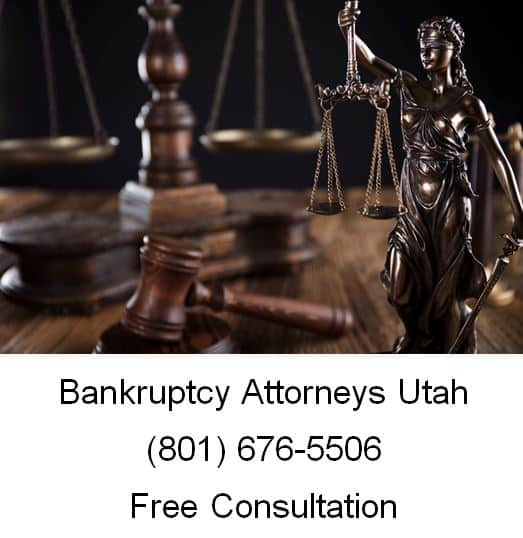Inside of bankruptcy, exemption laws shield certain items of property from the bankruptcy trustee. Outside of bankruptcy, exemption laws protect your property from judgment creditors.
The first rule to remember is that not all of your stuff is exempt. Each state and even the federal government have laws in place that outline what stuff debtors are permitted to keep no matter how much they owe to a creditor. The stuff that your state says is protected is considered exempt or untouchable. This means the bankruptcy trustee can’t sell it and creditors can’t attach it in satisfaction of a judgment.
Exemption Laws In Bankruptcy
Perhaps the number one misconception about chapter 7 bankruptcy is the belief that you will lose all of your property if you decide to file. This is not true. Many that file for chapter 7 bankruptcy don’t lose a single thing because their assets are fully exempt from the trustee. Inside of bankruptcy, exemption laws work to divide your property into two basic groups: exempt and non-exempt. Stuff that is considered exempt is property of a type and value that your state’s laws deem necessary to getting by. For example, everyone needs a car to get to work, so many states designate equity in your car exempt up to a certain dollar amount. The process in Georgia works as follows:
Debtors in Georgia are permitted to protect up to $3,500 of equity in all their motor vehicles. Value or equity that execceds this amount is considered non-exempt and potentially subject to sale by the trustee. For the purpose of determining the equity in a car, the fair market value is determined by reference to used car price guides customarily used by Georgia automobile dealers unless the debtor’s car is not listed in such a guide.
If you owned a car free and clear worth $15,000 in Georgia and filed for chapter 7 bankruptcy, it’s very likely the trustee would want to sell the vehicle and distribute the proceeds to your creditors (after taking 25% off the top). Keep in mind though that, were the car to be sold, you’d still be entitled to a check for the amount of the exemption, in this case $3,500 (this doesn’t factor in use of the GA wildcard exemption which could increase this amount). A sale doesn’t defeat your right to an exemption. You also have the option of paying the trustee the non-exempt value of your car in cash to avoid losing it at auction. You can usually negotiate a buyout through your attorney.
Exemption Laws Out of Bankruptcy
While the primary focus on our forum is their application to bankruptcy, exemption laws apply outside of bankruptcy court as well. When a consumer is judgment proof, all of the property they own is protected by exemption laws. This means that even if a creditor gets a judgment through a collection lawsuit, there is no property they can attach to satisfy the debt. One of your creditors could get a judgment against you for $1,000,000 and would have no rights to any of your stuff if it is all exempt. By contrast, judgment creditors can attach wages and property that are non-exempt. For example, the state of Alabama does not have a specific automobile exemption. Instead, debtors are permitted to protect up to $3000 worth of personal property (which includes cars, furniture etc.). If an Alabama debtor found themselves being pursued by a creditor, and owned a classic car worth $20,000, some of the equity in that car would be nonexempt and therefore exposed to attachment by creditors.
Are exemption laws the same in bankruptcy and collection lawsuits?
In some cases yes, the same exemption laws will apply to state collection actions and a bankruptcy, but it ultimately depends on your state’s laws and how long you’ve lived there. Thanks to bankruptcy reform legislation passed in 2005, the laws of your current state of residence might not apply to your bankruptcy. If you haven’t lived at your current home for the last 730 days, the laws of the state where you lived for the 180 days which preceded the 730 day period will apply to your case. Outside of bankruptcy court, each state determines how their collection laws will apply and the results can vary greatly. Some, such as Utah, have residency requirements before maximum homestead protection is triggered. If you have questions about how the law will apply to your case, contact a local attorney.
Free Consultation with a Bankruptcy Attorney
If you have a bankruptcy question, or need to file a bankruptcy case, call Ascent Law now at (801) 676-5506. Attorneys in our office have filed over a thousand cases. We will help you. Come in or call in for your free initial consultation.
8833 S. Redwood Road, Suite C
West Jordan, Utah
84088 United States
Telephone: (801) 676-5506
Recent Posts
Gift or Loan Prior to Bankruptcy
Anxiety and Depression During Divorce



